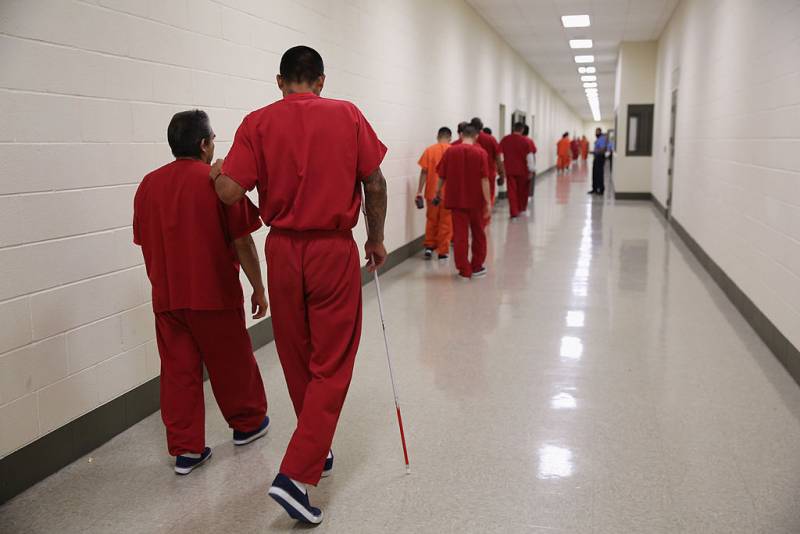GEO Group spokesperson Christopher Ferreira and ICE spokesperson Richard Beam declined to comment on the measure.
American Public Health Association Executive Director Georges Benjamin said public health officers are well positioned to inspect these facilities because they understand how to make confined spaces safer for large populations.
Even though they likely can’t force the detention centers to comply with their recommendations, their reports could provide valuable information for public officials, attorneys, and others who want to pursue options such as litigation, he said. “When the system isn’t working, the courts can play a very profound role,” Benjamin said.
The federal system that monitors health care and the transmission of communicable diseases inside immigration detention centers is broken, said Annette Dekker, an assistant clinical professor of emergency medicine at UCLA, who studies health care in these facilities.
Inspections of detention centers are typically conducted by ICE employees and, up until 2022, by a private auditor. In a paper published in June, Dekker and other researchers showed that immigration officials and the auditor conducted inspections infrequently — at least once every three years — and provided limited public information about deficiencies and how they were addressed.
“There’s a lot of harm that is happening in detention centers that we are not able to document,” Dekker said.
ICE and the GEO Group have been the subjects of lawsuits and hundreds of complaints alleging poor conditions inside the California facilities since the pandemic began. Some of these lawsuits are pending, but a significant share of complaints have been dismissed, according to a database maintained by the American Civil Liberties Union.
The most recent lawsuits by detainees allege crowded and unsanitary conditions, denial of adequate mental and medical health care, medical neglect, and wrongful death by suicide.
The California Division of Occupational Safety and Health fined the GEO Group about $100,000 in 2022 for failing to maintain written procedures to reduce exposure to COVID-19. The GEO Group has contested the fine.
“I have experienced really inhumane living conditions,” 28-year-old Dilmer Lovos told KFF Health News by phone from the Golden State Annex immigration detention center in McFarland, Kern County. Lovos has been held there since January while awaiting an immigration hearing.
Lovos, who was born in El Salvador and uses the pronouns they/them, has been a legal permanent resident for 15 years and was detained by immigration officials while on parole.
In early July, Lovos and 58 other detainees from Golden State Annex and the Mesa Verde ICE Processing Center in Bakersfield started a labor and hunger strike demanding the end of poor living conditions, solitary confinement, and inadequate medical and mental health services.
Lovos described a packed dorm room, clogged air filters, mice and cockroaches scurrying in the kitchen, water leaking from the ceiling, and detainees with flu-like symptoms who couldn’t get access to medication or a COVID-19 test when requested.
ICE protocols require testing of detainees with symptoms upon intake into facilities with no COVID-19 hospitalizations or deaths in the previous week. In facilities with two or more hospitalizations or deaths in the previous week, all detainees are tested during intake. It is up to each facility’s medical providers to decide when a test is necessary after that.
After Lovos filed a complaint with the GEO Group in June, alleging medical and mental health neglect, they said they were placed in solitary confinement for 20 days without a properly functioning toilet. “I was smelling my urine and feces because I was not able to flush.”
Ferreira declined to address Lovos’ allegations but said via email that detainees receive “around-the-clock access to medical care,” including doctors, dentists, psychologists, and referrals to off-site specialists.
“GEO takes exception to the unsubstantiated allegations that have been made regarding access to health care services at GEO-contracted ICE Processing Centers,” he said.
An unannounced inspection by federal immigration officials in April 2023 found Golden State Annex employees did not respond within 24 hours to medical complaints, which the report said could negatively affect detainees’ health and did not properly store detainees’ medical records.
Lovos said that no one has addressed their concerns and that conditions have only worsened.
“Please come check these places out,” Lovos said in a plea to local health officials.

